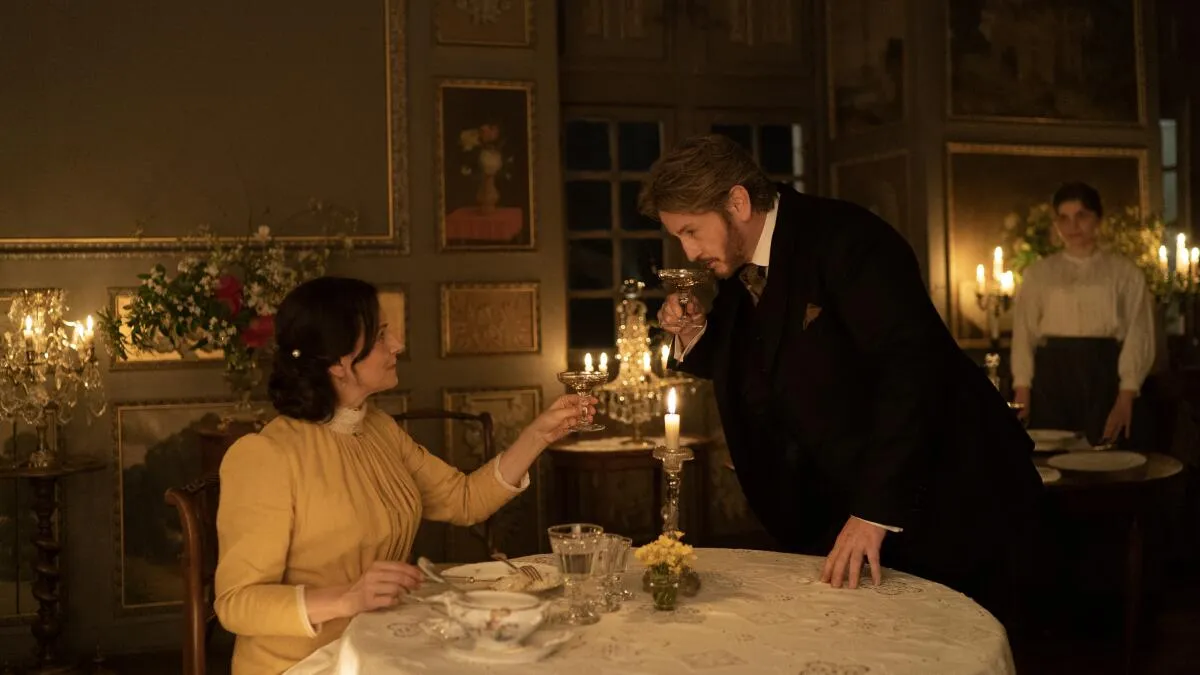
Film Review: The Taste of Things
Film Reviews
Film Review: The Taste of Things
Director: Tran Anh Hung
Gaumont
In Theatres: 02.09
In order to live, we must eat. Some partake in this practice with the goal of pure efficiency, treating the sustenance their body needs as nothing worth worrying about, or, a chore. Others relish in the procedural elements of food and its preparation. They make what they physically need into something spiritual, into art. For these kinds of people, food is something to be taken seriously, and something that brings joy. For them, food is love.
For an example, look no further than The Taste of Things, a French film by director Tran Anh Hung. The film follows Dodin (Benoit Magimel, The Piano Teacher, Pacification), a well-known gourmand living in France in 1885, and his cook Eugenie (Juliette Binoche, Chocolat, The English Patient) as they prepare a series of decadent meals for a group of Dodin’s friends.
The opening scene is lusciously shot, using smooth camera movements and bright colors as the pair works to create a luxurious feast in what has to be the most beautiful kitchens ever shown on screen. Though the film is not afraid to cut directly, the opening scene feels like a delicious whirlwind, sweeping the viewer away from their seat and transporting them directly into a world of succulent veal and an especially enticing flounder. When Eugenie gives Pauline, a young apprentice chef played by Bonnie Chagneau-Ravoire, a taste of a show-stopping Baked Alaska, Pauline begins to cry. Even without tasting it, the viewer can see why.
The Taste of Things is not a cooking tutorial or stylized commercial, however. At its heart, it is a story of love and change. In fact, Dodin and Eugenie are lovers. Though they resist some of the formalist requirements love brought on at the time in which the film takes place, the two exhibit what can only be described as a pure and deep love. Perhaps the film’s strongest sequence is when Dodin cooks a meal for Eugenie and Eugenie alone, with a centerpiece that ends up being one of many proposals of marriage.
And marry they do. But love, like food, is ephemeral. It is meant to be consumed and in some cases, cannot last forever. As the couple deals with a significant change in their relationship, their love is reinforced, and in many cases reborn. Pauline, the apprentice who, it turns out, has quite the aptitude for the gourmet, is now invited to take a step forward in her career. There will always be people who are willing to dedicate their lives to food, and therefore, to love.
One of the central meals featured in The Taste of Things is called pot-au-feu. This is a common French dish of boiled meat and potatoes, often served in two courses with the broth separated. The meal is largely reflective of the film. It’s about common things, and people who could have been anything. But when prepared by a master, something special turns out. Something that goes beyond basic meat and potatoes. Something that tastes like love.—Mickey Randle
Read more newly-released film reviews here:
Film Review: Dune: Part 2
Film Review: Drive Away Dolls